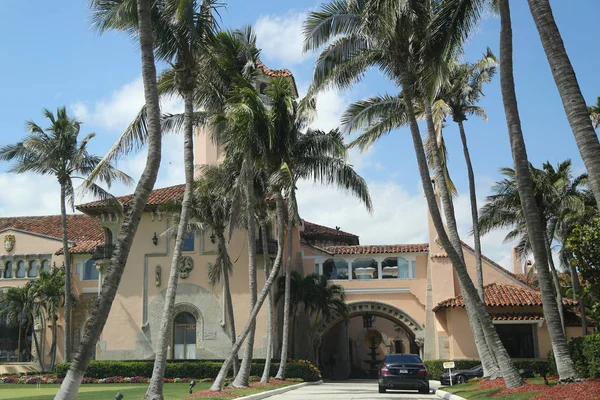Iran Diplomacy Can’t Wait
President Trump wants a nuclear deal. He had better act fast.

President Donald Trump says he wants a deal, not a war, with Tehran. “I would much prefer a Verified Nuclear Peace Agreement, which will let Iran peacefully grow and prosper,” he wrote last week on Truth Social.
He had better act fast. Negotiating an accord that constrains Iran’s nuclear energy program will take time. The one that President Barack Obama got took 20 months to negotiate, and forces opposing diplomacy may grow stronger in the months and years ahead. Meanwhile, Trump’s own position likely will diminish. Second-term presidents quickly learn that their political capital no longer accumulates—it dwindles.
Today Trump dominates the GOP, but on Iran, neocons are breaking ranks. “In my humble opinion, there is no such thing as a verifiable nuclear peace agreement with the Iranian regime, who are religious Nazis,” Senator Lindsey Graham wrote on X. Graham’s post came mere hours after Trump endorsed such an agreement.
If the president intends to pursue diplomacy with Iran, he should act while his approval ratings among Republicans are sky-high, and he should publicly tie the initiative to his opposition to forever wars. Graham is a steadfast uber-hawk, but many GOP politicians would fall in line behind Trump, if only to avoid provoking the ire of America-Firsters.
As anti-Iranian politicians in America seek to thwart diplomacy, Iran’s anti-American hardliners are challenging their own president’s support for talks. With President Masoud Pezeshkian at the helm, Tehran’s moderates have a powerful voice in government, but their position is precarious. Jamal Abdi—the president of the National Iranian American Council and a keen observer of Iran’s domestic politics—wrote to me that the “window for diplomacy on the Iranian side is narrow.”
Abdi said that President Joe Biden’s diplomatic failures show that opportunities for constructive engagement can be fleeting. Biden had campaigned on restoring the Obama-era accord, from which Trump withdrew in 2018, but a lack of urgency and refusal to offer meaningful concessions doomed the election promise. In August 2021, less than seven months after Biden’s own inauguration, the hardliner Ebrahim Raisi became president, succeeding Hassan Rouhani, a relative moderate. Negotiations stalled.
After Raisi was killed in a helicopter crash last year, Iranians elected Pezeshkian, who is more moderate than even Rouhani. Today, Iranian hardliners see a sucker in the new president, and they see duplicity, not an olive branch, in Trump’s diplomatic gestures. Despite opposition, Pezeshkian has signaled to Washington that he wants to negotiate. In December, his vice president for strategic affairs wrote that, if Trump is serious about wanting to make a deal, “Iran is willing to have a dialogue that would benefit both Tehran and Washington.”
Trump should take the offer. Successful diplomacy would vindicate Iran’s moderates and sideline its anti-American hardliners. Of course, this opportunity comes with corresponding risk. Murtaza Hussain of Drop Site News told me that “if things go south it will still be a political win for [Supreme Leader Ali] Khamenei and the hardliners who will say, ‘I told you so.’”
Hussain is undoubtedly right about the lower-level hardliners, but Khamenei, who is playing a complex and evolving role in Iranian discourse, might not see diplomatic failure as a win. Abdi told me last Thursday that Khamenei is “providing rhetorical support” to the moderates and “publicly preparing the country for talks.” But Abdi cautioned: “How long he will hold that political space open is the question.” As it happens, not very long. On Friday, Khamenei said that negotiating with the U.S. is “unwise, unintelligent, and not honorable.”
Nevertheless, Khamenei seems not to have prohibited his underlings from negotiating with the U.S. Most likely, Khameni is distancing himself from talks so that his reputation won’t be damaged if they fail. He may also be playing good cop, bad cop with his reformist president to enhance Tehran’s bargaining position. On X, Ali Vaez of the International Crisis Group noted that Khamenei made similar comments in 2011 despite authorizing Iranian diplomats to meet in secret with U.S. officials.
The biggest obstacle to diplomacy with Tehran may come not from the hardliners in America and Iran, but from those in Israel. Last week, Israel’s Prime Minister Benjamin Netanyahu, in a joint White House news conference with Trump, played more to the U.S. president than to reporters in the room. “The Iran terror axis has never been weaker,” Bibi boasted. “But as we discussed, Mr. President, to secure our future and bring peace to our region, we have to finish the job.”
Trump, in the presence of Netanyahu, deviated from the prime minister’s talking points. Asked by an Israeli journalist if Iran’s present weakness means now is “the right time to hit their nuclear facilities,” Trump pushed back. “They’re not weak,” he said. “They’re very strong right now.” Trita Parsi of the Quincy Institute tweeted a clip of the exchange and observed that Trump had demolished “the premise for the argument to attack.”
Parsi found another recent comment by Trump even more striking. Ahead of the meeting with Netanyahu, as Trump signed an executive order reimposing “maximum pressure” on Tehran, he said not only that he hoped to get a deal, but that “there are many people at the top ranks of Iran who do not want to have a nuclear weapon.” Writing in Responsible Statecraft, Parsi said that Trump’s comment is “problematic for Israeli Prime Minister Benjamin Netanyahu, who claims that Iran’s leaders are irrational and suicidal.”
Why did Trump, during Netanyahu’s visit, make diplomatic overtures to Israel’s adversary? The president may have wanted to establish a tacit quid pro quo: He’ll do what Netanyahu wants on Gaza in exchange for leeway on diplomacy with Iran. During the joint press conference, Trump proposed that the U.S. would “take over” Gaza and have its inhabitants resettled abroad. In the months ahead, the Israeli premier will need to think twice about obstructing Trump’s Iran diplomacy plans, lest his ally in the White House reconsider this proposal. But once the Gaza crisis is in the rear-view mirror, Trump’s leverage will wane.
The Israel lobby sometimes opposes U.S. diplomacy with Iran more aggressively than does Israel itself. But, at the moment, Trump and his allies seem to hold some leverage over pro-Israel groups. After Elon Musk appeared to give a Nazi salute at a post-inauguration rally in January, the Anti-Defamation League (ADL) dismissed the gesture as “awkward” and unintentional, urging “all sides” to “give one another a bit of grace, perhaps even the benefit of the doubt.” For the ADL, the statement was unusually restrained.
Pro-Israel groups will choose their battles with Trump wisely, but they won’t roll over. Though the ADL downplayed Musk’s controversial gesture, days later it condemned Nazi-related jokes he had made on X. These groups will undoubtedly push back on diplomacy with Tehran, as the ADL has done in the past, but Trump’s best shot at a deal is to begin the process now, while they are wary of getting on his bad side.
Machiavelli once wrote, in reference to great political leaders, “Without opportunity, their skill would have been wasted, and without skill, the opportunity would have been in vain.” Trump is a skilled politician, and some combination of cunning and good fortune has given him a golden opportunity to get something he wants: a landmark nuclear deal with Iran. Wasting it would be a shame.
The post Iran Diplomacy Can’t Wait appeared first on The American Conservative.

